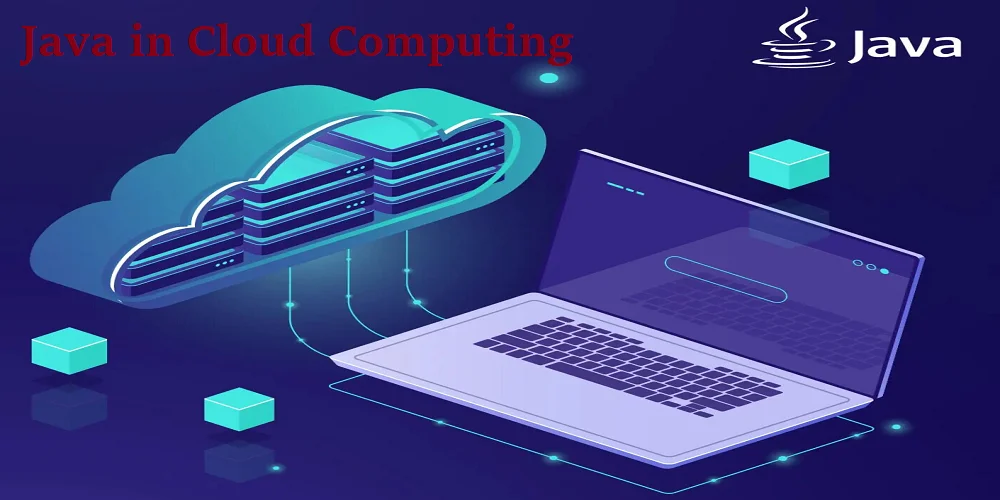Companies who operate with enterprise-level software at their cores maximize operations, and productivity and gain an advantage over others by being contemporary. Picking the right programming language becomes vital as companies rely on the software solution to drive development and innovation. This article emphasizes the power and reasons of Java for enterprise-level software solutions.
Java for Enterprise-Level Software Solutions: What is it and Why it needs?
The decision on which language to use is crucial in shaping enterprise-level software. The chosen language must be capable of handling complicated business algorithms, and vast databases that can operate with already deployed platforms. It should also have strong security, scalability, and reliability in that regard.
The primary decision is to use Java for enterprise-level software apps because of its many features and advantages. Introduced in the 1990s by Sun Microsystem, Java, is a widely used program language. The unique qualities make it a good choice of Java for enterprise-level software development. In the spirit of write once-run everywhere, Java programs can perform on many platforms with no need for re-compiling.
The huge ecosystem of language containing various libraries, architectures, and utilities makes development shorter as product launches faster. In addition, the impeccable security and reliability make it suitable to use Java for enterprise-level software applications.
Eight Reasons of Java for Enterprise-Level Software Solutions
Scalability and Performance: Elevating Java for Enterprise-Level Solutions
The scalability and performance of Java web application development services make it a perfect platform for building enterprise-level software. The language shows a high skill in managing large user loads and processing large data sets. Java Virtual Machine is a key tool that allows the possibility of enhancing the speed of applications running under heavy workload conditions. Java has a high degree of multi-threading support, which is beneficial in increasing system responsiveness and throughput, hence optimizing system efficiency.
Robust Security: Safeguarding Enterprise Solutions
Security is one of the most vital aspects when talking about enterprise-level software solutions. In this domain, Java provides a full security model that is intrinsic containing such elements as encryption for security, authentication, and granting access. The strict typing of the language and its built-in exception-handling techniques are so effective that they proactively block typical security issues, like buffer overflow and memory leaks. Java’s security manager also enables administrators to set specific permissions and policies, ensuring its operation within an inherently safe environment. These firm security foundations ensure Java for enterprise-level software applications as an undeniable protector.
User-Friendly Simplicity
Java has become famous because of its simplicity used for creating an application. Writing code using Java is straightforward and adaptable enough, giving a developer an intuitive and usable atmosphere for software application development. With Java’s reusability and the effortlessness of code maintenance, enterprises, and businesses can effortlessly maintain existing apps while creating new software programs. Being easy to code and maintain, Java for enterprise-level software apps is popular among developers.
Platform Independence: Flexibility in Development

The platform freedom of Java is a prominent benefit, allowing the software to be designed on one platform and accomplished correctly on any other with JVM. It is a special “write once, run anytime” characteristic that saves on both the cost of developing and keeping the app running. It does not require rewriting the code base for various operating systems. Also, it eases its integration with other systems, making Java a preferred option for organizations dealing with many IT systems. On this note, it is important to note that this inherent flexibility makes Java a powerful software provider with flexible development solutions.
Rock-Solid Stability: Java’s Enduring Reliability
Among other programming languages available, Java remains an unquestionable leader in stability. New Java version is always coming up, which supports how timeless this programming language is. Java’s excellent exception handling ensures error management while maintaining the wholeness of an application, which contributes to overall stability.
Java, in particular, continues to be a favorite option among leading companies that depend on reliability for their technology stack. Companies and Enterprises have made use of this stable platform in their quest to deliver a consistent and stable experience to customers.
Potent Development Arsenal: Empowering Capabilities
There are several vital business processes in which enterprise applications guide operations, such as planning, data capturing, analysis, operation, and others. This calls for strong multi-functional support to cope with the in-built features and their functionality.
Among many advantages that are typical for Java, IDE is special. This powerful set includes all automation tools, debugs, and the editor to become available to programmers in one place. IDE for Java makes development of the complicated enterprise applications simple and allows navigating through various levels of the business process.
Extensive API Offering: Java’s Integration Prowess
Java presents external data sources and other data elements in a strongly typed way for developers. Today, we see trends of applications being information-oriented instead of code-oriented, and this is what we refer to as ‘data centrism’. This change is because of the elevated priority to secure the data type at outside outlets.
On this note, Java is an excellent option for adoption because of its robust type nature in an environment full of enterprise application dynamism. The comprehensive API offering only further cements Java’s allure, promoting deep linkage possibilities that are compatible with the present-day data-centric approach to developing software systems.
Abundance of Libraries: Empowering Java’s Versatility
Once more, the focus returns to Java which leads a group of several libraries having provided answers for unique problems and enabling several functions through the various existing routes. A remarkable point here is their availability mostly as freeware or under open-source licenses while being well-suited for commercial application. Java also provides many APIs, IDEs, and frameworks that have successfully addressed challenges, such as automation of recurring activities and customer data management, among other issues.
Although the chance to hand code still exists, Java has several frameworks that make the app-building process less cumbersome and faster. Libraries and frameworks show the flexibility of Java, which is a brilliant companion in developing applications for enterprises that change dynamically.
Java for Enterprise-Level Software Development
There are many frameworks used in the progress of large-scale software for enterprises using Java. These frameworks comprise ready-made components, libraries, and other tools intended to simplify frequent development operations, enhance productivity, and promote good practice. Among the array of Java for enterprise-level software development, some popular ones include:
Spring Framework
Using the popular Spring Framework since it’s known to be lightweight and flexible enough to provide an excellent platform for building enterprise programs. It has built-in qualities that include dependency injection, Inversion of Control, and aspect-oriented programming which ease the development process, making possible the design of scalable and manageable software and IT solutions. Various modules like Spring Boot, the Spring MVC module, or the Spring Data module are part of this big ‘Spring’ and they all offer solutions useful in developing Java for enterprise-level software applications.
Tutorial : Kafka migration to Spring Boot
JavaServer Faces (JSF)
The factor-based JavaServer Faces (JSF) web framework arises to simplify the creation of user interfaces for enterprise applications. Equipped with a powerful set of UI components, event handlers, and data-binding functionalities, JSF facilitates the effortless construction of dynamic and user-friendly web pages. Unified integration into other Java EE technologies makes JSF preferable for large-scale business software production.
Hibernate
It is a renowned ORM framework within the Java platform built for streamlining database usage and administration with Java apps. It simplifies the implementation of various CRUD operations within relational databases with an easy and high-level API.
With its capabilities of not requiring difficult SQL statements, hibernate allows programmers to concentrate on the underlying business logic instead of performing low-level data exchange operations. Specifically, it has a clear persistence mechanism that automatically syncs up every change that is applied to any object to enhance synchronization and management of the database.
Challenges and Considerations in Java for Enterprise-Level Software Development

While many benefits will bring by Java for enterprise-level software development, it also introduces challenges and considerations that warrant attention:
1) Learning Curve
- Java is a little hard to learn, especially for programmers not proficient in it.
- One must understand object-oriented programming concepts, design, and patterns.
- To build such development in Java, organizations may have to make provisions for training programs for them to reach competency levels with Java.
2) Performance Optimizations
- Java has many points of praise for its outstanding performance, but finely tuned optimizations targeted at particular use cases could require further work.
- For successful outcomes, developers need to have a grasp of JVM tuning, memory management, and other vital performance optimization tactics.
3) Legacy Systems Integration
- Integrating Java for enterprise-level software solutions is difficult, especially when these apply to old legacy systems.
- Successful integration needs careful planning, thorough testing, and conformance to the industry standards concerning data exchange and interoperability.
- Before adopting Java, organizations need to assess whether their old system can integrate with or match it.
Conclusion
As an application programming language Java for enterprise-level software, including browsers, mobile apps, web of things, or servers, Java is global among applications. It has developed over time. Consulting technical experts becomes necessary if your company needs or wishes to add advanced competencies of Java for enterprise-level software solutions apps. This will create a firm base that could form and sustain long-term successful technology businesses.



